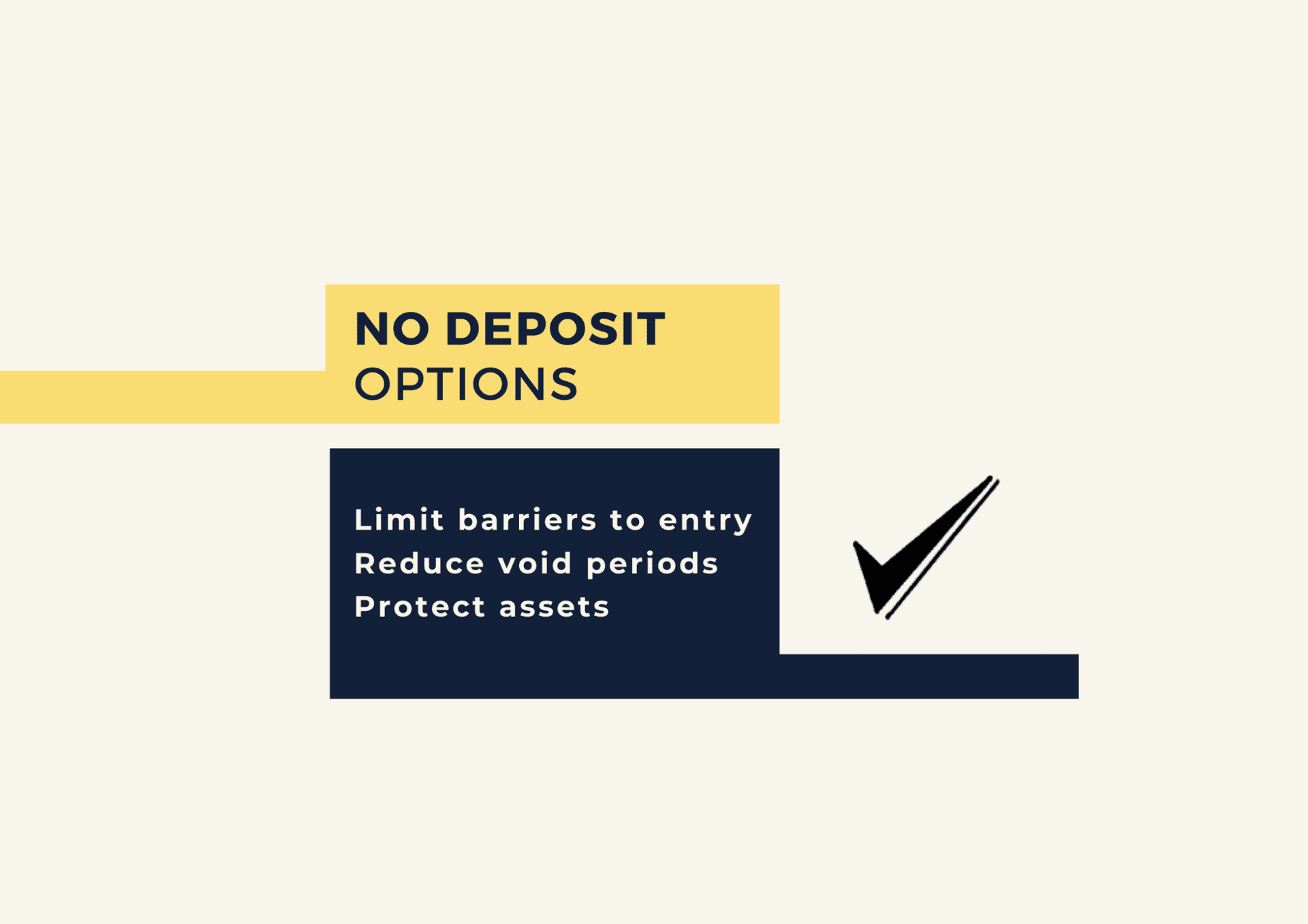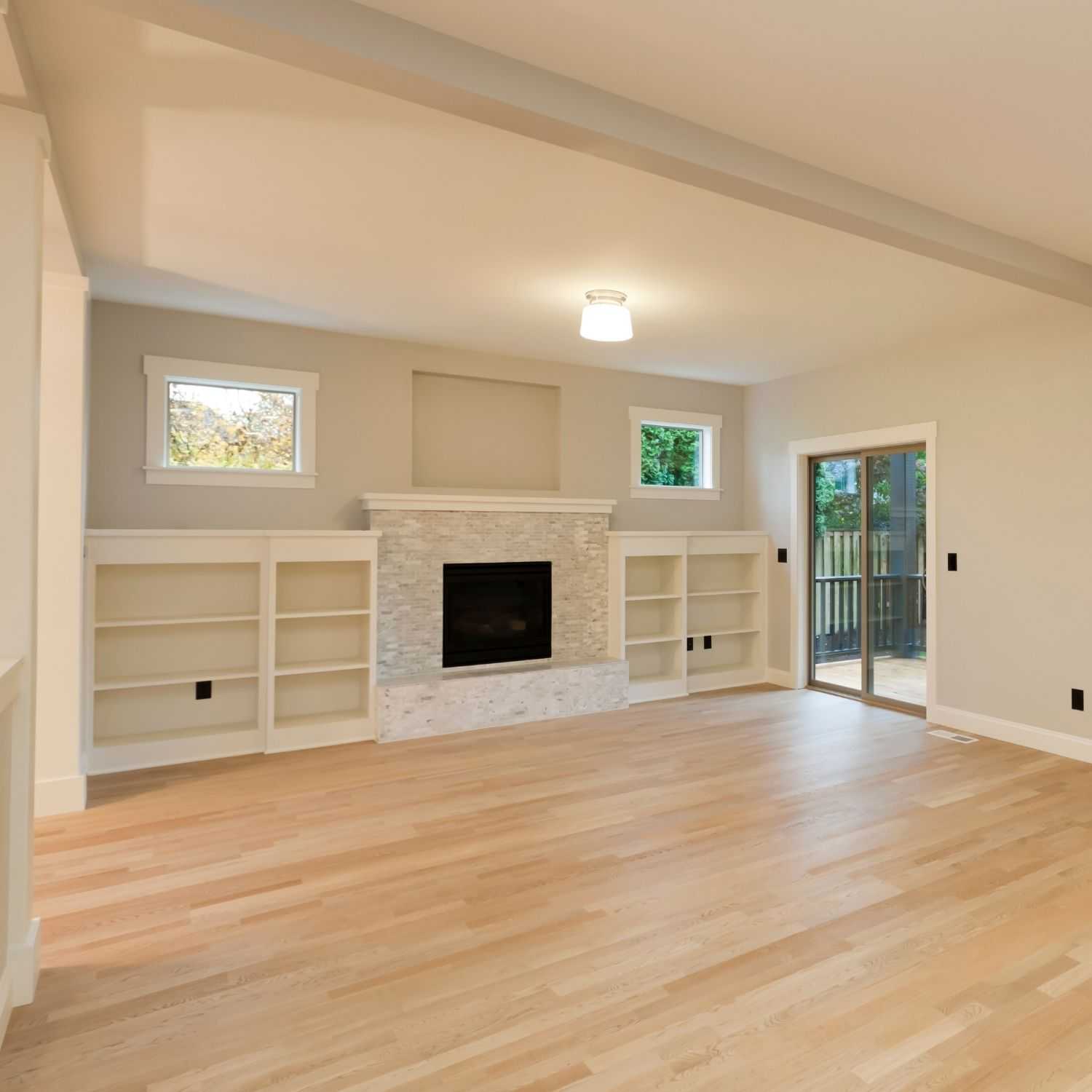Share post:
(Article updated August 2025)
Key Takeaways:
- No deposit options make private rented properties more affordable while protecting a landlord’s property against damage and disputes.
- Traditional deposit schemes make it harder for tenants to afford a new rental property since they usually have to pay a deposit (5 weeks’ worth of rent) while waiting for the release of their previous deposit (with the old landlord).
- Landlords benefit from no deposit schemes because they help lower vacancies, make the property affordable to a wider tenant pool, ensure quicker payouts and offer flexibility.
- No deposit does not mean “no liability” since tenants are still responsible for paying for damages and repairs at the end of the tenancy period.
No Deposit Options: Is It Better?
Can landlords in London benefit from no deposit options?
Yes, it can be beneficial for London landlords because it offers flexibility and makes renting more affordable to a wider range of tenants.
Traditional tenancy deposit schemes usually require tenants to pay money upfront, which is up to 5 weeks’ rent. This is not necessary if the landlord offers a no-deposit option. Tenants pay a smaller deposit amount while landlords still get the protection they need against damage and disputes.
Traditional Deposit Challenges
The default tenancy deposit scheme in the UK requires paying a large deposit upfront before moving in. According to the Tenant Fees Act 2019, if the annual rent is less than 50,000, tenants pay a maximum of 5 weeks’ rent. If it’s beyond $ 50,000, the deposit amount is equivalent to up to 6 weeks’ worth of rent.
This deposit will be returned after the landlord checks for damage. This means the tenant may have to wait until the entire check-out process is complete before they can receive their deposit or any remaining balance.
This traditional deposit scheme has several issues.
- Not all tenants can afford to pay a deposit while waiting for their previous landlord to release the deposit.
- In the event that the tenant raised a dispute, the landlord couldn’t access the deposit money to make repairs or improvements to the property.
- Due to the way deposit schemes work, the check-out process is slower to complete and vacancy periods become longer.
With the competitive nature of private rental properties in London, these delays can make last-minute moves and flexibility more complicated.
How are No Deposit Schemes Better?
No deposit options do not always mean the tenant pays nothing. The tenant will be required to pay a deposit equivalent to one week’s rent.
How does this deposit scheme work?
Before the tenant moves in, they must either pay one week’s rent, a monthly fee, or an annual fee. If the tenancy period is only a year or two, the tenant would save significantly compared to the traditional deposit scheme.
This amount will be secured by a no-deposit scheme provider. While no-deposit options help tenants save money, it is essential to note that they will not receive this money back. If the property has damage or arrears after the tenancy period ends, the tenant must pay them out of pocket. They can’t use the deposit to offset the expenses.
Under this scheme, landlords are protected by an insurance or a zero deposit scheme provider. If the tenant refuses to pay the damage or arrears, the provider will cover the costs and will pursue the tenant through a debt collection agency. The protection covers up to 10 weeks’ worth of rent. This provides landlords with peace of mind in the event of major damage or prolonged disputes.
Will Landlords Benefit from No-Deposit Options?
Although the no-deposit options appear to favour tenants, landlords can still find several benefits. It won’t make landlords lose protection. Instead, they can stay competitive without compromising occupancy rates and rental income.
Here are 4 reasons why no-deposit schemes are beneficial.
Lower vacancies
When you market your property with a no-deposit scheme, tenants are more likely to show interest. Some agents report getting 25% more enquiries compared to listings that only offer traditional deposit schemes. By offering flexible deposit schemes, you’ll always have tenants showing interest in renting your property.
Greater tenant pool
Reports reveal that the UK monthly rent increased by 6.7%, with the highest rent found in London at £2,252. With the high rental rates in London, the no-deposit option makes properties more affordable to a wider tenant pool. This increases the accessibility of your property while ensuring you get reliable and responsible tenants.
Quicker payout and recovery
In no deposit options, the landlord is covered by the scheme provider. The tenant remains financially responsible for any damage or repairs incurred during their tenancy. However, if they fail to pay, the provider will cover the cost. This leads to quicker payouts. Usually, recovery takes less than 10 days. In the event of disputes, resolution typically occurs within 28 days.
Flexibility and adaptability
The notable shift in behaviour in the rental market means flexibility is a main draw among tenants. By offering both traditional deposit schemes and no-deposit options, you enable them to access your rental property regardless of their financial situation. Your property becomes more appealing and affordable without compromising your rental income.
Pros and Cons of No Deposit Options
Offering no deposit schemes in addition to the traditional deposit option has its own pros and cons. It’s not just for tenants but also for landlords.
Pros
- Increases competitiveness and attracts more tenant inquiries.
- Reduces vacancy period between tenants.
- Lowers financial barriers to give more people a chance to rent.
- Offers more protection for landlords, giving them peace of mind that damage and repairs will be paid for even if the tenant refuses to pay. The provider will pay and use a debt collection agency to go after the tenant.
- Speeds up the check-out process as recovery can be completed within 10 days.
Cons
- Tenants might assume they’ll get the 1-week deposit back.
- Schemes that require an annual fee may deter potential tenants.
- Tenants who are unable to pay for damage and repairs may require the services of a debt collection agency.
Before asking the tenant to sign an agreement, ensure they fully understand the implications of the no-deposit scheme. Be clear about their financial responsibilities, such as monthly or annual fees and damage costs that will be incurred once their tenancy ends.
FAQs About No Deposit Options
Let’s clarify some things about the no-deposit scheme in London.
How do no deposit schemes work?
The no-deposit option for private rental properties means tenants are charged a smaller deposit amount. This is usually equivalent to 1 week’s rent or a monthly or annual fee. The scheme protects the landlord by holding tenants responsible for paying for any damage or arrears. This differs from traditional deposit schemes, where the tenant pays a larger deposit upfront that remains in a protected scheme, which takes longer to be released (and potentially longer if the tenant files a dispute).
What happens if a tenant raises a dispute at the end of the tenancy?
Regardless of the deposit scheme, tenants can raise a dispute for damage or arrears. No-deposit schemes also utilise a government-backed adjudicator to resolve disputes within 28 days. You’ll need to wait until then to find out who will end up paying for the damage and repairs to the property. However, if the tenant does not raise a dispute, you can receive the funds owed within 10 days.
Is a tenant still required to pay damages in a no-deposit scheme?
Yes, the tenant is responsible for paying for any damage or arrears on the property after the tenancy period ends. If they refuse, the scheme covers the landlord and providers like Flatfair will issue the funds and pursue the tenant through a debt collection agency.
How is a no-deposit option better than a traditional tenancy deposit?
No-deposit options are preferable to traditional deposits because they allow more tenants to afford to move in. This means vacancy rates will be lower as more tenants will be interested in renting your property. As long as the tenant is clear about the financial responsibilities that come with no-deposit schemes, landlords should be able to make more from them compared to traditional deposits.
Reduce Vacancy Period Through No Deposit Options
The demand for flexibility means that offering two types of deposit schemes would make your rental property more attractive to tenants. The no-deposit option leads to lower vacancy rates, wider tenant interest, and greater protection for landlords.
By offering a choice, you can maximise profitability while keeping peace of mind that your property will have sufficient funds for damage and repairs caused by tenants.
At City Relay, we offer a full package of property management services that includes setting up the no-deposit scheme for your property. We’ll handle communicating the details with potential tenants, so you don’t have to deal with the stress.
Learn more by speaking with our team. Get a free rental estimate to have an idea of how much your property can earn for you.












